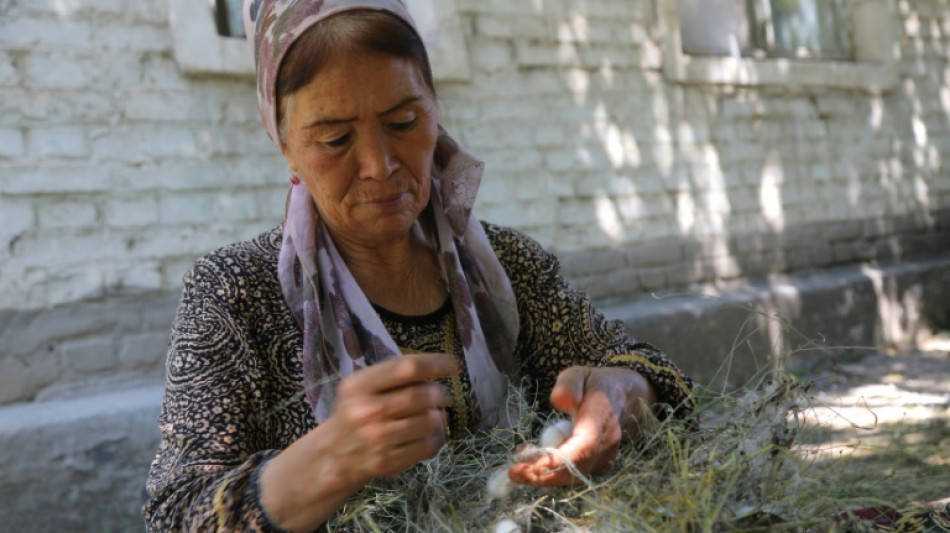
-
 Trump says White House to host UFC fight on his 80th birthday
Trump says White House to host UFC fight on his 80th birthday
-
Vast reserves, but little to drink: Tajikistan's water struggles
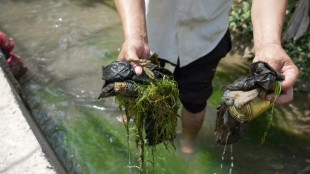
-
 US government shutdown may last weeks, analysts warn
US government shutdown may last weeks, analysts warn
-
Arsenal host Lyon to start new Women's Champions League format

-
 Gloves off, Red run, vested interests: Singapore GP talking points
Gloves off, Red run, vested interests: Singapore GP talking points
-
Bills, Eagles lose unbeaten records in day of upsets

-
 Muller on target as Vancouver thrash San Jose to go joint top
Muller on target as Vancouver thrash San Jose to go joint top
-
Tokyo soars, yen sinks after Takaichi win on mixed day for Asia
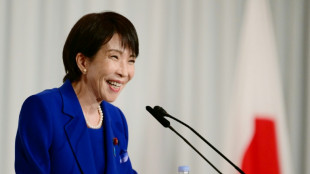
-
 China's chip challenge: the race to match US tech
China's chip challenge: the race to match US tech
-
UN rights council to decide on creating Afghanistan probe

-
 Indonesia sense World Cup chance as Asian qualifying reaches climax
Indonesia sense World Cup chance as Asian qualifying reaches climax
-
ICC to give war crimes verdict on Sudan militia chief
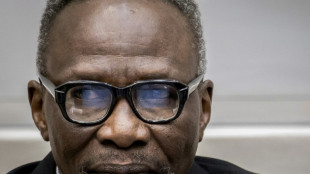
-
 Matthieu Blazy to step out as Coco's heir in Chanel debut
Matthieu Blazy to step out as Coco's heir in Chanel debut
-
Only man to appeal in Gisele Pelicot case says not a 'rapist'

-
 Appetite-regulating hormones in focus as first Nobel Prizes fall
Appetite-regulating hormones in focus as first Nobel Prizes fall
-
Gisele Pelicot: French rape survivor and global icon

-
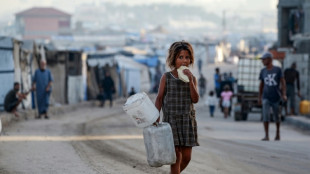 Negotiators due in Egypt for Gaza talks as Trump urges quick action
Negotiators due in Egypt for Gaza talks as Trump urges quick action
-
'My heart sank': Surging scams roil US job hunters
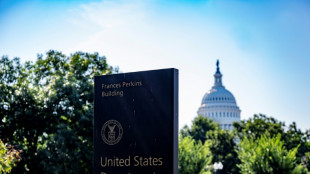
-
 Competition heats up to challenge Nvidia's AI chip dominance
Competition heats up to challenge Nvidia's AI chip dominance
-
UK police to get greater powers to restrict demos

-
 Guerrero grand slam fuels Blue Jays in 13-7 rout of Yankees
Guerrero grand slam fuels Blue Jays in 13-7 rout of Yankees
-
Five-try Bayonne stun champions Toulouse to go top in France

-
 Fisk reels in Higgo to win maiden PGA Tour title in Mississippi
Fisk reels in Higgo to win maiden PGA Tour title in Mississippi
-
Aces overpower Mercury for 2-0 lead in WNBA Finals

-
 Bayonne stun champions Toulouse to go top in France
Bayonne stun champions Toulouse to go top in France
-
Greta Thunberg among Gaza flotilla detainees to leave Israel

-
 Atletico draw at Celta Vigo after Lenglet red card
Atletico draw at Celta Vigo after Lenglet red card
-
Ethan Mbappe returns to haunt PSG as Lille force draw with Ligue 1 leaders

-
 Hojlund fires Napoli into Serie A lead as AC Milan held at Juve
Hojlund fires Napoli into Serie A lead as AC Milan held at Juve
-
Vampires, blood and dance: Bollywood horror goes mainstream
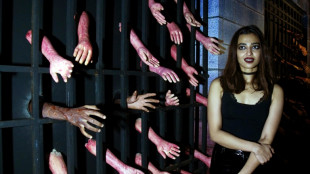
-
 Broncos rally snaps Eagles unbeaten record, Ravens slump deepens
Broncos rally snaps Eagles unbeaten record, Ravens slump deepens
-
Former NFL QB Sanchez charged after allegedly attacking truck driver

-
 France unveils new government amid political deadlock
France unveils new government amid political deadlock
-
Child's play for Haaland as Man City star strikes again

-
 India crush Pakistan by 88 runs amid handshake snub, umpiring drama
India crush Pakistan by 88 runs amid handshake snub, umpiring drama
-
Hojlund fires Napoli past Genoa and into Serie A lead

-
 Sevilla rout 'horrendous' Barca in Liga thrashing
Sevilla rout 'horrendous' Barca in Liga thrashing
-
Haaland fires Man City to win at Brentford, Everton end Palace's unbeaten run

-
 Haaland extends hot streak as Man City sink Brentford
Haaland extends hot streak as Man City sink Brentford
-
Italy working hard to prevent extra US tariffs on pasta
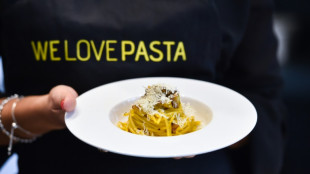
-
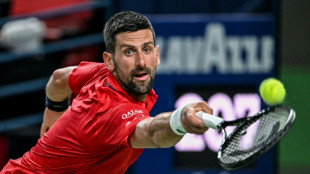 Sinner out of Shanghai Masters as Djokovic battles into last 16
Sinner out of Shanghai Masters as Djokovic battles into last 16
-
Swift rules N. America box office with 'Showgirl' event

-
 Ryder Cup hero MacIntyre wins Alfred Dunhill Links on home soil
Ryder Cup hero MacIntyre wins Alfred Dunhill Links on home soil
-
Republicans warn of pain ahead as US shutdown faces second week

-
 Sevilla rout champions Barca in shock Liga thrashing
Sevilla rout champions Barca in shock Liga thrashing
-
Norris-Piastri clash overshadows McLaren constructors' title win

-
 Trump administration declares US cities war zones
Trump administration declares US cities war zones
-
Bad Bunny takes aim at Super Bowl backlash in 'SNL' host gig

-
 El Khannouss fires Stuttgart into Bundesliga top four
El Khannouss fires Stuttgart into Bundesliga top four
-
Insatiable Pogacar romps to European title


Uzbekistan tries to put fresh spin on its silk industry
In the shade of an almond tree, Zubayda Pardayeva began the age-old and barely profitable process of turning cocoons into silk that Uzbekistan wants to overhaul.
With her expert fingers honed by 40 years of labour, Pardayeva delicately removed the white silkworm cocoons from bushy dried mulberry branches.
Each contains a silk thread about a kilometre long secreted by the caterpillar of the domestic silk moth.
"Everything is done by hand. The most complicated part is caring for the silkworms and then harvesting their cocoons without altering their quality," Pardayeva told AFP in Nurafshon, south of the capital Tashkent.
During the rearing season, from April to June, "everyone is involved", the 60-year-old said.
"Men cut the mulberry branches to feed the silkworms and women take care of the caterpillars," she said.
In a neighbouring barn, yellowish worms munched the mulberry leaves.
"After the harvest, we will hand over the cocoons to the state," said Pardayeva, surrounded by other women who were "helping voluntarily".
- 'Elements of coercion' -
The silk industry -- an ancestral tradition in the Central Asian country which is the world's third biggest producer -- is state-controlled and unprofitable.
This is the result of decades of Communist economic planning until 1991, followed by a quarter of a century of isolation under former leader Islam Karimov.
"The silk industry is run using methods borrowed from the Soviet past, with farmers forced to grow cocoons, particularly those who already have mulberry plantations," Uzbek economist Yuli Yusupov told AFP.
Yanobil Tashibekov, a farmer in Nurafshon, said this year he had received "three boxes of silkworm eggs" from the Uzbek government.
"If I'm lucky, I'll harvest 150 kilos of cocoons, which will earn me six million soms," said Tashibekov, a sum equivalent to around 450 euros, twice his monthly salary.
While forced labour in cotton fields has been abolished by President Shavkat Mirziyoyev, the United States still bans imports of Uzbek silkworm cocoons on grounds of the "use of forced labour in their production".
Tashkent has denied those claims but Yusupov, who has been prosecuted and then cleared for his criticism of the industry, said there were "elements of coercion on farmers, with prices set by the state".
This creates "problems for productivity and quality", he said.
- Liberalisation -
But for Yusupov, there are reasons to "hope for change" in Uzbekistan's growing silk sector.
"The president has ordered that it be reformed from 2025 to introduce market mechanisms, so we hope to see a revolutionary transition," he said.
Mirziyoyev wants to make the silk sector one of the country's major employers by 2027.
With 26,000 tonnes of silk produced in 2023, Uzbekistan aims to consolidate its position as the world's third largest producer.
As it stands, China and India account for around 95 percent of global production, according to the International Sericultural Commission.
Mirziyoyev has also ordered an increase in the purchase price of cocoons, new mulberry plantations, tax exemptions for breeders and the restructuring of farms to make production more profitable.
The goal is to boost exports of raw materials and the fabric, particularly to the European market and its luxury designers.
Mariam Niyazova, founder of Tumush Tola ("Silver Fibre" in Uzbek), runs one of the few Uzbek companies offering the entire silk cycle, from worm rearing to the manufacture of clothing and bedding.
"In 2020, I bought equipment from China and South Korea and managed to produce fabrics. It was difficult because of the lack of specialists," she said, recalling the "years of stagnation" under Karimov.
But now Niyazova is more optimistic.
"We are already exporting to Iran, China and Azerbaijan, and soon hope to be exporting to Europe," she said.
E.Burkhard--VB



